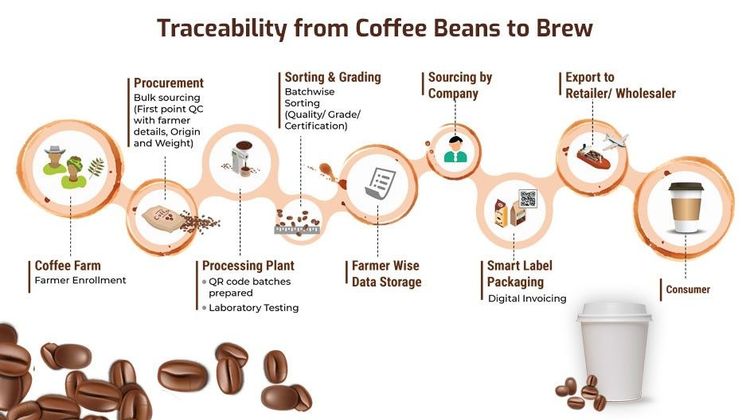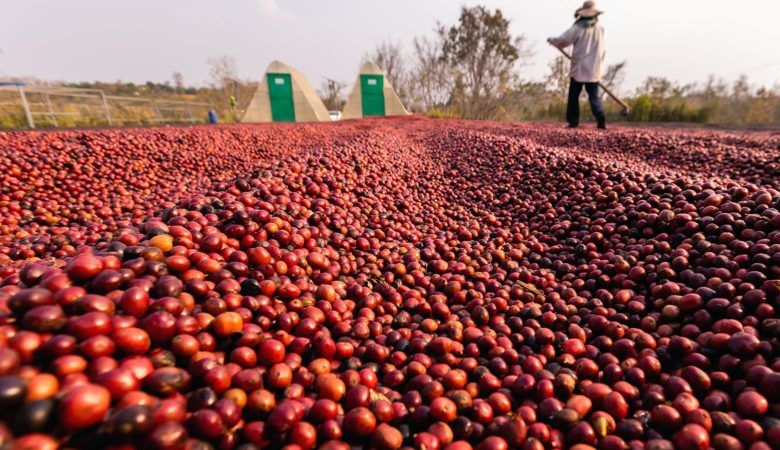
Coffee Process
Media

CEO NOTES
The spread of organised coffee cultivation in Ethiopia - as related by lsrael Degefa.
Coffee spread to the highland areas of Sidamo where the trees are newer. In my home area, the trees can be 65-85 years old. Trees this mature no longer produce good, flavoursome coffee but farmers have been resistant to replanting due to the perceived interruption in their income. On a side note, in response to this issue Kerchanshe now runs a range of ...
As the specialty coffee industry continues to grow and evolve, the concept of traceability is gaining increasing importance. From single-origin beans to organic production, knowing the source and journey of your coffee is essential for understanding its quality and impact. But what exactly is coffee traceability, and why does it matter? In this blog post, we’ll delve into the concept of coffee traceability and explore its significance in today’s coffee world.
Coffee traceability refers to the ability to track the movement of coffee from its point of origin to the final consumer. This includes verifying the authenticity of the coffee, understanding where it was grown, and identifying any issues in the supply chain. Traceability helps to ensure quality control and can improve transparency and accountability. Though coffee traceability is a relatively new concept, there is no single standard for what constitutes “traceable” coffee. Generally, traceability should include information about the farm where the coffee was grown, the cooperative or company that purchased it, and the importer or roaster who processed it. Consumers increasingly demand transparency, and companies like Kerchanshe Trading PLC are meeting this demand by offering traceable and ethically produced coffee from various regions of Ethiopia.

Benefits of Coffee Traceability
Benefits of Coffee Traceability
Traceability allows for the monitoring of coffee from farm to cup, helping to identify and address any quality issues that may arise during production. This ensures that consumers receive only high-quality coffee.
By promoting transparency in the supply chain, coffee traceability supports sustainable practices. It ensures that coffee is ethically sourced and can help support smallholder farmers through a transparent supply chain.
Traceability provides consumers with the story behind their coffee, enhancing their enjoyment and connection to the product. Knowing the origins of coffee can add value to the drinking experience.
Transparency throughout the supply chain builds trust between consumers and brands. It ensures that all stakeholders, from farmers to roasters, are accountable and that consumers can make informed choices.
The coffee supply chain is a complex system involving many players. It begins with farmers growing the coffee beans and ends with consumers enjoying the brewed coffee. In between, coffee beans are transported, processed, roasted, and brewed. Traceability in this supply chain involves tracking the beans’ journey through each step, from origin to final product. One key aspect of traceability is being able to trace beans back to their source, which can be challenging due to the global nature of coffee trade. Another important factor is tracking the beans’ journey from farm to cup, including transportation, storage, roasting, and brewing. Effective traceability helps ensure freshness and quality.
Why Is Coffee Traceability Important?
Why Is Coffee Traceability Important?
Traceability helps ensure that coffee meets industry standards and maintains high quality throughout its journey.
It encourages sustainable practices by ensuring ethical sourcing and better resource management, which helps prevent environmental degradation.
Traceability supports ethical production practices, including fair labor conditions and social responsibility.
By providing transparency, traceability builds trust between consumers and producers. It ensures that consumers are informed about the origin and ethical standards of their coffee.
Maintaining coffee traceability involves several practices. It starts with keeping accurate records of where coffee beans are sourced. These records must be up-to-date and accurate to ensure traceability. Transparency throughout the supply chain is also crucial, with all actors from growers to retailers making product information available to consumers.
Coffee traceability is a powerful tool for promoting sustainable and ethical coffee production. It helps ensure that coffee is responsibly sourced, supports fair compensation for producers, and protects the environment. As consumers become more aware of their choices, traceability will play an increasingly vital role in the coffee industry, enhancing the overall quality and impact of the coffee we enjoy.
Related Blogs
July 28, 2022

March 13, 2023

November 15, 2023

